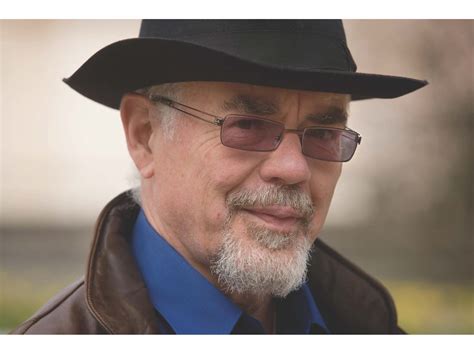A Quote by Barbara Ehrenreich
Natural selection, as it has operated in human history, favors not only the clever but the murderous.
Quote Topics
Related Quotes
Creationists argue that natural selection is only a negative process, and therefore cannot create anything. Chopra argues that skepticism is only a negative process, and therefore does not lead to knowledge. Both are wrong for the same reasons. They ignore the generation of diversity and new ideas upon which natural selection and skepticism acts. Weeding out the unfit is critical to both - natural selection allows evolution to proceed, and skepticism allows science to advance.
Natural Selection is not Evolution. Yet, ever since the two words have been in common use, the theory of Natural Selection has been employed as a convenient abbreviation for the theory of Evolution by means of Natural Selection, put forward by Darwin and Wallace. This has had the unfortunate consequence that the theory of Natural Selection itself has scarcely ever, if ever, received separate consideration.
Now let me step back from the problem and very generally discuss natural selection and what we know about it. I think it is safe to say that we know for sure that natural selection, as a process, does work. There is a mountain of experimental and observational evidence, much of it predating genetics, which shows that natural selection as a biological process works.
Group selection and individual selection are just two of the selection processes that have played important roles in evolution. There also is selection within individual organisms (intragenomic conflict), and selection among multi-species communities (an idea that now is getting attention in work on the human microbiome). All four of these levels of selection find a place in multi-level selection theory.
The human brain became large by natural selection (who knows why, but presumably for good cause). Yet surely most "things" now done by our brains, and essential both to our cultures and to our very survival, are epiphenomena of the computing power of this machine, not genetically grounded Darwinian entities created specifically by natural selection for their current function.
On the theory of natural selection we can clearly understand the full meaning of that old canon in natural history, “Natura non facit saltum.” This canon, if we look only to the present inhabitants of the world, is not strictly correct, but if we include all those of past times, it must by my theory be strictly true.
You can be a thorough-going Neo-Darwinian without imagination, metaphysics, poetry, conscience, or decency. For 'Natural Selection' has no moral significance: it deals with that part of evolution which has no purpose, no intelligence, and might more appropriately be called accidental selection, or better still, Unnatural Selection, since nothing is more unnatural than an accident. If it could be proved that the whole universe had been produced by such Selection, only fools and rascals could bear to live.
If... deceit is fundamental to animal communication, then there must be strong selection to spot deception and this ought, in turn, to select for a degree of self-deception, rendering some facts and motives unconscious so as not to betray - by the subtle signs of self-knowledge - the deception being practiced.' Thus, 'the conventional view that natural selection favors nervous systems which produce ever more accurate images of the world must be a very naive view of mental evolution.




































